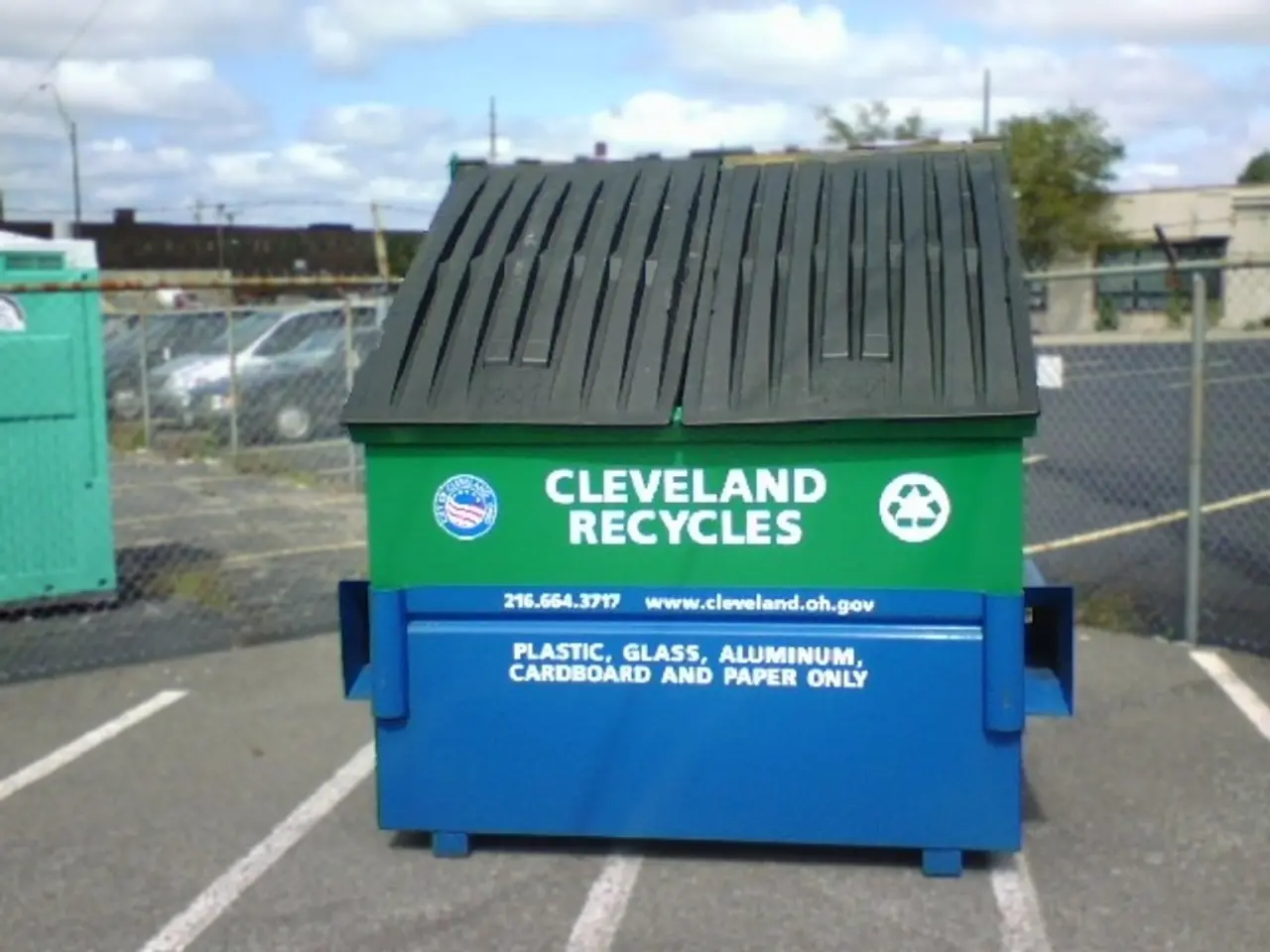Hiking trucking costs by over 100 euros per ton!
In the picturesque region of Bavaria, waste disposal fees can vary significantly among different districts due to a combination of regional waste management policies, infrastructure costs, local regulations, and economic conditions. This article explores these factors in the context of five Bavarian districts: Augsburg, Günzburg, Unterallgäu, Dillingen, and Donau Ries.
Waste Management Policies in Augsburg
The district of Augsburg has made commendable strides in waste separation, particularly in single-family home areas. However, improvements are needed in areas with many multi-family homes. The district administration provides households with a brown bio bin for organic waste free of charge, and the waste collection truck arrives at 7 a.m. daily.
Revenue Generation through Organic Waste
The organic waste collected in Augsburg brings financial benefits to the waste management department. Through biogas production, bio-methane conversion, and the sale of compost and liquid fertilizer, the district generates income that helps offset disposal costs. The biogas produced is enough to heat around 4000 households per year.
Cost Comparison
Residents of the Augsburg district pay 144.48 euros per year for a 120-liter residual and organic waste bin, while Augsburg city residents pay 253.08 euros for the same service. This disparity can be attributed to the district charging per ton, while the city charges based on the number of people in a household.
Günzburg, Unterallgäu, Dillingen, and Donau Ries districts charge significantly more for similar services: 388 euros, 379 euros, 338 euros, and 338 euros respectively. These differences in fees reflect the various factors influencing waste disposal costs across districts.
Infrastructure Costs and Local Regulations
The cost of maintaining waste collection facilities, transportation, and disposal infrastructure can vary. Areas with more remote or dispersed populations might have higher costs due to longer distances and lower economies of scale. Local governments may also impose different regulations or taxes on waste disposal, contributing to variations in fees.
Economic Conditions
Economic factors such as local business activity, industrial presence, and residential density can influence waste generation rates and disposal costs. More affluent areas might have higher disposal costs due to increased consumption and waste generation.
Calculation of Fees
Fees are typically calculated based on several key components: collection and transportation costs, disposal costs, administrative and regulatory costs, and environmental taxes and levies. While specific data on the exact fees for Augsburg, Günzburg, Unterallgäu, Dillingen, and Donau Ries is not available, these factors generally contribute to variations in waste disposal fees across different regions in Bavaria.
In conclusion, waste disposal fees in Bavaria are influenced by a complex interplay of regional waste management policies, infrastructure costs, local regulations, and economic conditions. Understanding these factors can help residents make informed decisions about their waste disposal practices and contribute to more sustainable waste management in the region.
Science plays a pivotal role in the environmental-science sector, as innovative solutions for waste management are developed and applied, such as biogas production and bio-methane conversion in Augsburg, Bavaria, contributing to industry's financial resources. The finance and economic conditions, including industrial presence and residential density, further affect waste generation rates and disposal costs, thereby impacting waste management policies and environmental-science strategies in various districts.




